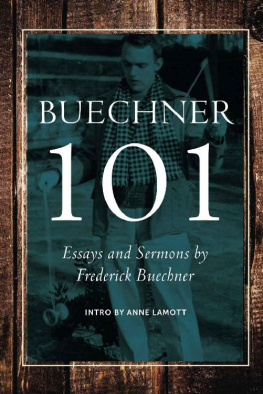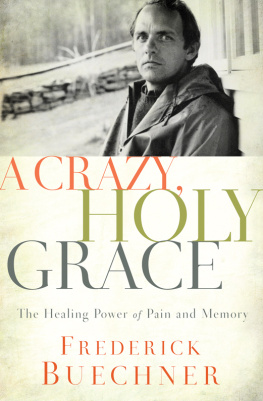The apocryphal Book of Tobit is generally believed to have been written in either Hebrew or Aramaic by an unknown author sometime during the second century B.C. The place of its composition may have been Jerusalem, Antioch, or Alexandria. Who knows?
The historical period of the book is bounded on one end by the year 722 B.C. , when the Assyrians captured the Northern Kingdom of Israel and carried the cream of its population off to their capital city of Nineveh, and on the other by the year 612 B.C. , when Nineveh itself was captured and razed by a coalition of Medes and Babylonians. The anonymous author was as cavalier about getting all his facts straight, however, as the Archangel Raphael in my version. He is hazy about which Assyrian king did what, he wrongly places the Tigris between Nineveh and Ecbatana, and from Ecbatana to Rages is not a two days journey. He was more interested in telling a good story, and so, through the Archangels lips, was I.
I have stuck as closely as possible to the narrative as he wrote it. I have not added any new characters except for such walk-ons as the blind beggar and the girl with the blue scarf. Even Ednas unpleasant maidservants are present in the original, as are also, of course, the dog, the sparrows, and the monstrous fish. I have also not omitted any characters, not even the treacherous Nadab despite the fact that his role is strictly peripheral. My description of the demon Asmodeus is based on the one given in the Book of Revelation, where he appears under the name of Abaddon or, in Greek, Apollyon. All other descriptions, both of physical appearance and of character, are my own though based on such clues as the original contains. Tobits view of the Holy One as essentially the Scorekeeper is consistent with how he speaks of him in the original, and the brief extracts from his interminable prayer that I give in chapter 13 are verbatim from the Revised Standard Version of the Bible.
Such humor as my tale contains is also in keeping with the unknown authors spirit. I cant imagine his having described with a straight face how poor Raguel got up in the middle of the night to dig a grave for his son-in-law and then sent somebody else to fill it in an hour or so later when it turned out not to be needed. But in terms of what he had to say about the ways both of God and of humankind, he was entirely serious. And so am I.
Tobit Insulted
I AM R APHAEL, ONE OF THE SEVEN ARCHANGELS WHO PASS IN and out of the presence of the Holy One, blessed be he. I bring him the prayers of all who pray and of those who dont even know that theyre praying.
Some prayers I hold out as far from me as my arm will reach, the way a woman holds a dead mouse by the tail when she removes it from the kitchen. Some, like flowers, are almost too beautiful to touch, and others so aflame that Id be afraid of their setting me on fire if I werent already more like fire than I am like anything else. There are prayers of such power that you might almost say they carry me rather than the other way roundthe way a bird with outstretched wings is carried higher and higher on the back of the wind. There are prayers so apologetic and shamefaced and halfhearted that they all but melt away in my grasp like sad little flakes of snow. Some prayers are very boring.
Would it surprise you to know that when Im not carrying prayers, I often shake with laughter? It is the world that I laugh at and never more heartily than when I bring to mind the story that in good time I will tell you.
It is the story of a journey and a fish and a boy. It is the story of a demon with hair like a womans and a lions teeth, and of a chatterbox of a wife and a slender, dark-haired girl who loved her father. It is the story of a twitter of sparrows who never for a moment doubted that their chalky droppings were a gift for the world to treasure, and of a dog with the eyes of a saint and a lavender tongue, and of two bags of silver with their seals unbroken. And it is the story of how I got myself up as a young globe-trotter with a stout pair of boots and a sack full of road maps. You will say that they didnt have such things as stout boots and road maps in ancient Assyria, and the chances are you are right, but when you have seen as many Assyrias come and go as I have, you tend to lose track of details.
I say I will tell the story in good time, by which I mean two things. First, I mean that eventually I will tell it. I mean that through all its twists and turns I will bring it to an end at last. Second, I mean that time itself is good , even the times when the dung heaps of Nineveh were littered with the variously strangled, eviscerated, dismembered cadavers of those imprudent enough to catch the bloodshot eye of Shalmaneser, or Sennacherib, or Esarhaddon, or whatever sociopath happened to be sitting on the throne at the moment with his face all but lost in the oily black ringlets of a lambs-wool beard and on either hand a winged bull higher than a house who looked just like him.
The things that the world fills time with are enough to turn the heart to stone, but the goodness of time itself is as untouched by them as the freshness of a spring morning is untouched by the yelps from the scaffold. Time is good because the Holy One made it that way and then set the heavenly bodies wheeling through the sky so there would always be a way of marking its passage. Unfortunately, not even the most devout understand this for more than possibly a day or two out of the entire year when everything seems to be going their way. The rest of the year they go around like everybody else rolling their eyes and expecting terrible things to happen. When terrible things do happen, they fail to understand that for the most part they have brought them down on their own heads. They prefer to think that it is time itself that is terrible and that the terrible things are only another method by which the Holy One afflicts them for their sins.
Take Tobit for instance. He was blind as a bat when Anna, his wife, insulted him, but he rolled his eyes anyway because she had told him he was a fool, and he suspected that she might be right and that the Holy One agreed with her. She stood in the kitchen with her lower lip thrust forward in the way that she had and dressed him down so thoroughly that you would never have guessed that in her heart she was quite fond of him. She herself did not guess it, so carried away she was by the force of her own eloquence. Every month or so she was in the habit of doing something new and implausible with her hair because it was a way of using up some of her unspent energy. On this occasion she had dyed it as black as the kings beard and, except for a few corkscrew curls around her ears, had piled it high on her head with the use of some bone pins and a pair of ivory combs that one of the rich women she worked for had given her in a moment of uncharacteristic generosity. Not noticing the dog as she stormed out of the kitchen, she tripped over him. He was a large, mild-mannered dog with a coat as shaggy and gray as smoke who belonged to her son, Tobias. When he leapt to his feet to get out of her way, he knocked over a table piled with dirty dishes, and Tobit, who of course could see nothing of what had happened, concluded not unreasonably that she was in the process of adding to her insult by pulling the house down about their ears. It was the last straw, and once she had left, he groped his way through the wreckage to the outhouse behind the vine-covered wall in the courtyard, which a few years earlier had been the scene of his blinding. It was there that he uttered a prayer.











